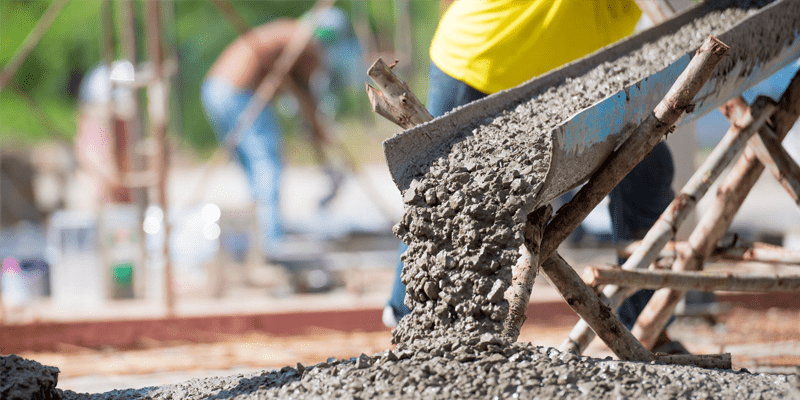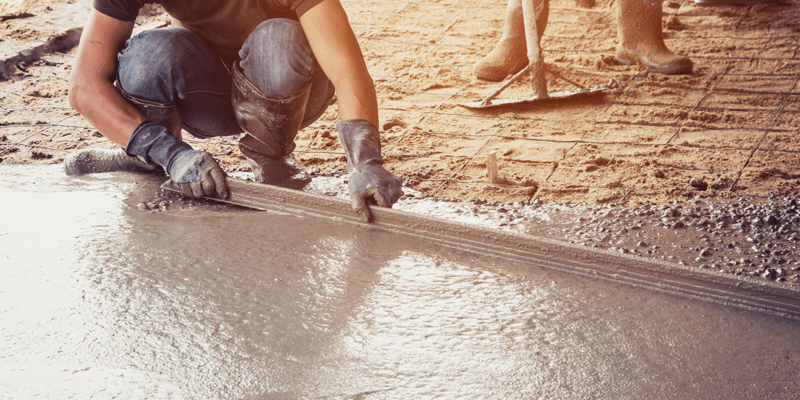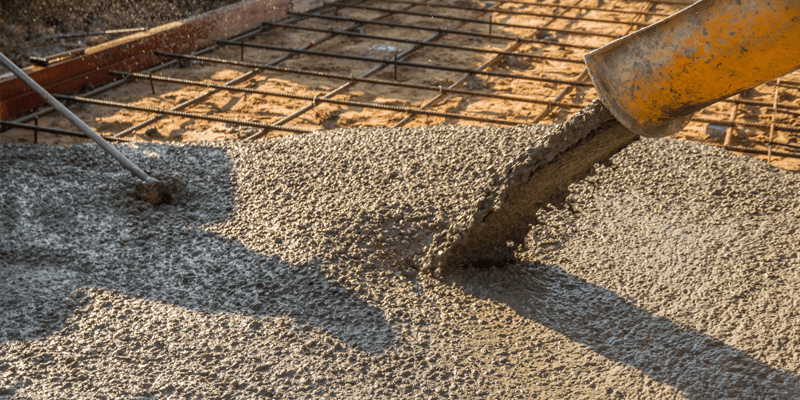Table of Contents
If you are a home or business owner, you know how important it is to have a strong, stable foundation. The same is true for your concrete structures - whether it is a driveway, patio, or foundation. Concrete comes in different grades, and it is important to understand the differences so you can choose the best one for your needs.
This article will discuss the different grades of concrete, what each one is best for, and how to tell which grade is the right fit for your home or business.
What is Concrete?

Concrete, also known as cementitious composite or simply cement, is a mixture of an aggregate and a binder. The most common aggregate material in the United States is Portland cement, which, when mixed with water, can form a hard substance. Depending on the application's needs, you can use different types of concrete for your project, such as C5 - C9, C10, C15 through to C40. Hiring a professional contractor will ensure that all work meets code requirements and any necessary inspections are completed on time.
What are the Different Concrete Grades?

Before exploring the different concrete grades, it's important to understand how they are designated. The concrete grades are designated by letters A through F, with A being the weakest and F being the strongest. The grade of concrete is determined by the compressive strength, which is a measure of how much force it takes to crush the concrete sample.
The following table outlines the different grades of concrete and their corresponding compressive strengths:
Grade Concrete Compressive Strength
- A= 2,000 psi or less
- B= 3,000 psi or less
- C= 5,000 psi or less
- D= 7,500 psi or less
- E= 10,000 psi or less
- F= 20,000 psi or more
As you can see, the higher the grade of concrete, the greater its compressive strength. So what are these different grades of concrete good for?
C5 - C9
This lower grade of concrete is best for projects that don't require high compressive strength, such as sidewalks, driveways, and parking lots. It is also a cost-effective option for smaller projects. The main downside to this grade of concrete is that it is not as durable as the higher grades and can be more susceptible to weathering and cracking.
C10
This grade of concrete is a good option for projects that need a bit more durability, such as foundations and slabs. It is also commonly used for walls, columns, and beams. C10 concrete has a compressive strength of 10,000 psi and is resistant to most weathering conditions.
C15
This grade of concrete offers even more durability than C10 and is good for applications such as bridges, highways, and large parking lots. It has a compressive strength of 15,000 psi and can withstand harsh weather conditions.
C20
This grade of concrete is often used for structures such as stadiums, schools, and hospitals. It has a compressive strength of 20,000 psi and can withstand even more severe weather conditions.
C25
This grade of concrete is the most commonly used for residential applications. It has a compressive strength of 25,000 psi and is resistant to most normal weathering conditions.
C30
This grade of concrete is ideal for commercial projects that require extra durability. It has a compressive strength of 30,000 psi and can withstand harsh weather conditions than C20 or C25 concrete.
C35
This grade of concrete is for heavy-duty commercial projects that need an even greater level of durability. It has a compressive strength of 35,000 psi and can withstand the most severe weather conditions.
C40
This grade of concrete is for the most demanding commercial projects. It has a compressive strength of 40,000 psi and is resistant to even the harshest weather conditions.
Now that you know about the different grades of concrete, how do you decide which one is right for your project? This is often one of the most difficult parts of having concrete installed and is why it's recommended to reach out to a licensed professional.
Generally speaking, you should take these factors into consideration when having a concrete structure installed:
- climate and weather conditions in your area
- the weight of the proposed structure
- the type of material that will be used with the concrete
For example, if you live in an area with hot summers and cold winters, it's recommended to use a grade of concrete that is resistant to extreme weather conditions. Or, if you are installing a very heavy structure, you will need a grade of concrete that can withstand the extra weight.
It's also important to consider the compatibility of the concrete with other materials that will be used. For example, if you are using a stone veneer on your home, you will need to use a grade of concrete that is compatible with that material.
How to Choose a Concrete Contractor
If you're ready to have a concrete structure installed, it's important to choose the right contractor. A good contractor will be able to help you choose the right grade of concrete for your project and will ensure that it is installed properly.
Here are a few things to look for when choosing a concrete contractor:
- licensed and insured
- experienced in installing the type of concrete you need
- references from past clients
- willing to provide a written contract
Once you've found a few contractors that meet these criteria, it's important to ask them some questions about their experience and the services they offer. Make sure you feel comfortable with the contractor and that they are able to provide what you need.
If you have any questions about concrete grades or need help choosing the right contractor, don't hesitate to reach out to us. We're here to help!
Once you have a good understanding of the different grades of concrete and what they are best for, it's time to start shopping around for a contractor. When interviewing contractors, be sure to ask about their experience with each grade of concrete and what projects they have used it for. This will help you make an informed decision about which contractor is right for your project.
Concrete is a versatile material that can be used for a variety of applications. By understanding the different grades of concrete and what they are best for, you can make the right choices for your project and ensure its success. Thanks for reading!

